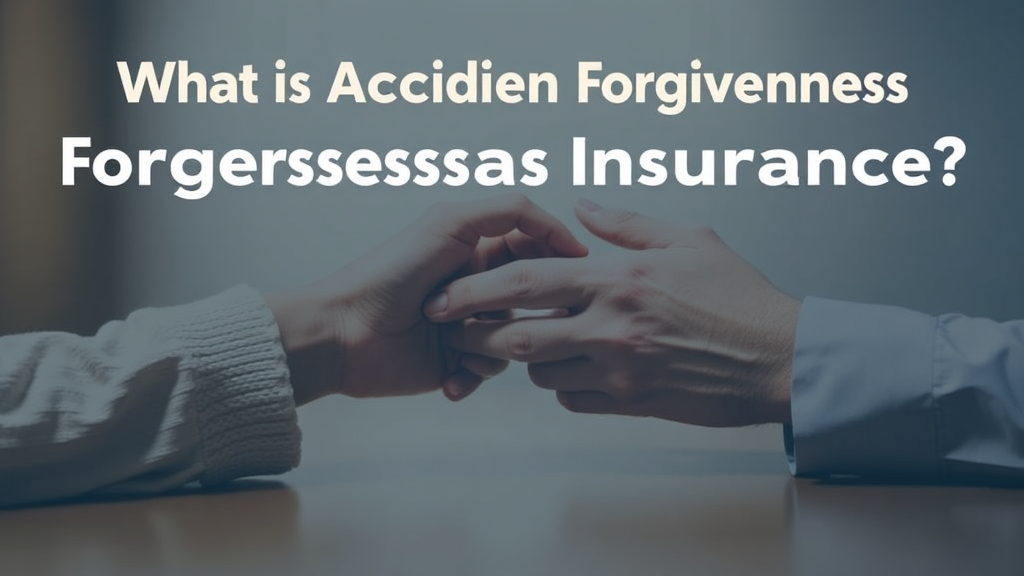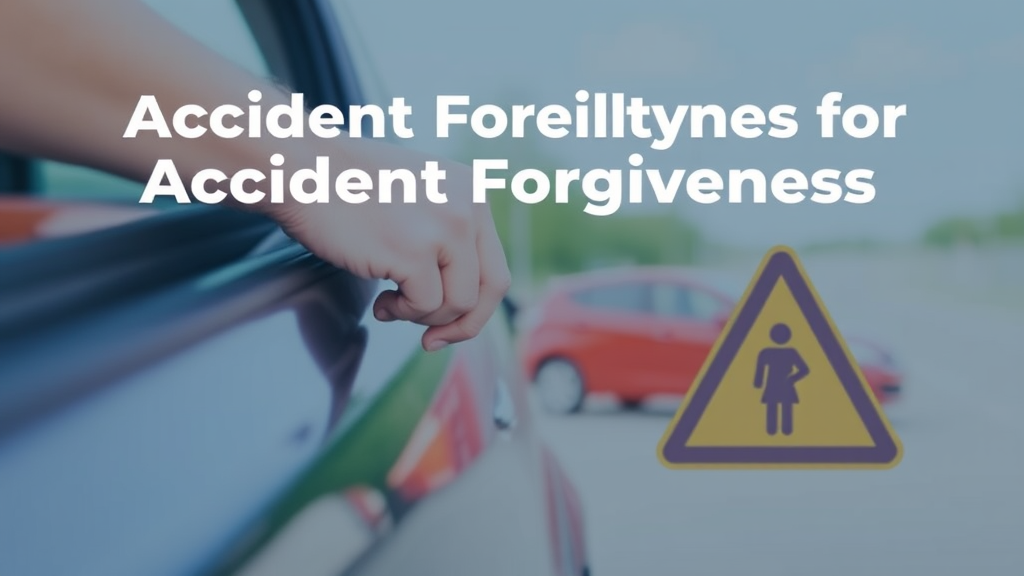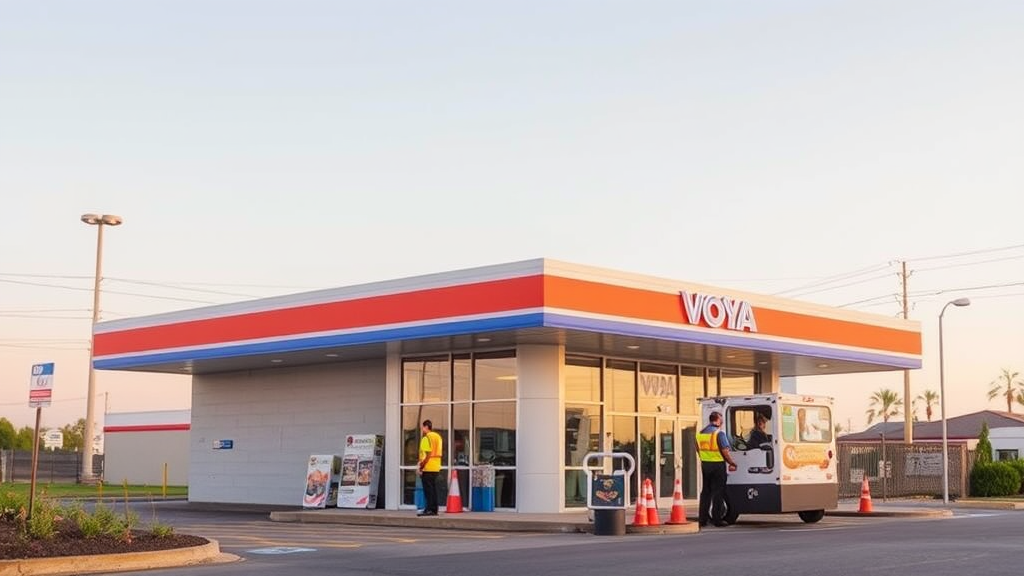Driving in the United States comes with its share of uncertainties, and unfortunately, accidents are a part of that reality. For many drivers, the fear of rising insurance premiums after an at-fault accident is a significant concern.
This is where accident forgiveness insurance comes into play, offering a crucial safety net that can protect your financial well-being and driving record. This comprehensive guide will delve deep into what accident forgiveness insurance is, how it works, its benefits, eligibility requirements, and which top providers in the USA offer this valuable accident forgiveness insurance feature.
We will also explore related concepts and answer frequently asked questions to provide you with a complete understanding of this essential car insurance add-on. The importance of accident forgiveness insurance cannot be overstated in today’s unpredictable driving environment.
What is Accident Forgiveness Insurance?

Accident forgiveness insurance is an optional car insurance feature that prevents your premium from increasing after your first at-fault accident. This means that even if you are determined to be responsible for a collision, your insurance rates will not go up as a direct result of that incident.
It’s a valuable benefit designed to reward safe drivers and provide peace of mind, ensuring that a single mistake doesn’t lead to significantly higher insurance costs. While the core concept remains consistent, the specifics of how accident forgiveness insurance works can vary considerably among insurance providers and even by state regulations.
Many insurers offer accident forgiveness insurance as a loyalty perk to policyholders who maintain a clean driving record for a specified period, typically three to five years.
In such cases, it’s often provided at no additional cost as a reward for continuous safe driving. However, some companies also offer it as an optional add-on that drivers can purchase to protect their rates.
The decision to purchase this coverage often depends on a cost-benefit analysis: if the cost of the add-on is less than the potential premium increase after an accident, it can be a worthwhile investment.
For instance, data suggests that insurance premiums can increase by an average of 43% after an at-fault accident, making accident forgiveness insurance a potentially significant money-saver.
It’s crucial to understand that accident forgiveness typically applies to your first at-fault accident.
The terms and conditions for subsequent accidents or other types of claims (like comprehensive or collision claims not involving another vehicle) may differ. Additionally, the availability of accident forgiveness can be influenced by state laws.
For example, some states, such as California, do not permit insurers to offer accident forgiveness due to specific regulations like Proposition 103. Therefore, it’s always advisable to check with your insurance provider about the availability and specific terms of accident forgiveness in your state.
Benefits of Accident Forgiveness Insurance: Why It Matters

The primary and most significant benefit of accident forgiveness insurance is the protection it offers against premium increases after an at-fault accident.
Without this coverage, a single accident where you are deemed responsible can lead to a substantial hike in your car insurance rates, potentially costing you hundreds or even thousands of dollars over several years.
Accident forgiveness insurance acts as a financial buffer, safeguarding your budget from unexpected surges in insurance costs. This is particularly valuable for drivers who have maintained a clean record for a long time and want to avoid being penalized for a single, unfortunate incident.
Beyond the direct financial savings, accident forgiveness provides invaluable peace of mind.
Knowing that a minor fender-bender or an unforeseen accident won’t drastically impact your insurance premiums can reduce stress and anxiety while driving.
This allows drivers to focus on safe driving practices without the constant worry of a potential rate increase looming over them. It encourages responsible driving by rewarding policyholders for their long-term good behavior, rather than punishing them severely for an isolated event.
Furthermore, accident forgiveness can help maintain your driving record’s integrity in the eyes of your insurer. While the accident itself will still be on your official driving record (which is separate from your insurance record), the forgiveness aspect means that your insurer won’t use that specific incident to re-evaluate your risk profile and increase your rates. This can be beneficial when it comes to future policy renewals or when seeking quotes from new insurance providers, as a clean insurance history (even with a forgiven accident) can still be advantageous.
Another subtle but important benefit is the potential for continued access to preferred rates and discounts. Many insurance companies offer various discounts for safe drivers, multi-policy holders, or those with continuous coverage. If an at-fault accident were to cause a significant premium increase, it might also jeopardize your eligibility for these valuable discounts. Accident forgiveness helps ensure that you can continue to enjoy these savings, further contributing to your overall insurance affordability.
In essence, accident forgiveness insurance is an investment in financial stability and peace of mind. It acknowledges that accidents can happen to even the most careful drivers and provides a mechanism to mitigate the financial repercussions, allowing you to get back on the road with confidence. It’s a testament to an insurer’s commitment to their loyal and responsible policyholders, offering a tangible benefit that can make a real difference in the aftermath of an accident.
Eligibility Criteria and How to Qualify for Accident Forgiveness

Qualifying for accident forgiveness insurance is not always automatic and typically depends on a combination of factors set by individual insurance companies and, in some cases, state regulations. While the specifics vary, there are common eligibility criteria that most insurers consider. Understanding these requirements is crucial for drivers looking to benefit from this valuable accident forgiveness insurance coverage.
One of the most prevalent criteria is maintaining a clean driving record for a specified period. Many insurers offer accident forgiveness as a reward for loyalty and safe driving, often requiring policyholders to be accident-free and violation-free for a continuous period, commonly ranging from three to five years . This demonstrates a consistent commitment to safe driving habits, making you a lower risk in the eyes of the insurer. Some companies, like Liberty Mutual, may even forgive your first accident if you’ve been accident-free for five years, regardless of whether they were your insurer for that entire period.
Accident Insurance: 7 Essential Benefits & Your 2025 Guide
Another common requirement is continuous insurance coverage. Insurers often prefer policyholders who have maintained uninterrupted car insurance coverage, either with them or with previous providers. This indicates a responsible approach to car ownership and risk management. Some companies might also require you to be a policyholder with them for a certain number of years before you become eligible for their accident forgiveness program.
In some instances, accident forgiveness might be tied to specific policy types or coverage levels. For example, Allstate offers accident forgiveness as part of its Gold and Platinum “Your Choice Auto” packages, meaning you might need to opt for a higher-tier policy to access this benefit. Similarly, Travelers includes accident forgiveness as part of its Responsible Driver and Premium Responsible Driver plans. It’s important to review your policy details or discuss with your agent to understand if your current coverage qualifies or if an upgrade is necessary.
Some insurers also differentiate between “small accident forgiveness” and “large accident forgiveness.” Progressive, for example, offers small accident forgiveness for claims under $500 to all new customers, while large accident forgiveness (for any accident) is typically reserved for those with a clean record who have been insured with them for at least five years. This tiered approach allows for different levels of protection based on driving history and loyalty.
It’s also worth noting that the availability of accident forgiveness can be state-dependent. As mentioned earlier, certain states have regulations that prohibit or restrict insurers from offering this feature. Therefore, even if an insurer advertises accident forgiveness nationally, it might not be available in your specific state. Always confirm with your insurance provider about the rules and availability in your area.
To qualify, drivers should proactively inquire about accident forgiveness when purchasing or renewing their policy. Ask about the specific eligibility criteria, whether it’s offered for free or as a purchasable add-on, and any limitations or conditions that apply. Maintaining a clean driving record, being a loyal customer, and choosing appropriate policy options are key steps to becoming eligible for this valuable insurance benefit.
Top Providers Offering Accident Forgiveness Insurance in the USA
Several leading car insurance companies in the United States offer accident forgiveness insurance, each with its own set of terms, conditions, and eligibility requirements. While the availability can vary by state, here’s an overview of some of the top providers and how they typically implement this valuable accident forgiveness insurance feature:
Allstate is frequently cited as a top provider for accident forgiveness. They offer it as part of their “Your Choice Auto” packages, specifically the Gold and Platinum tiers. With the Gold package, one accident can be forgiven every three years, while the Platinum package allows for an unlimited number of forgiven accidents. Allstate also allows customers in the Platinum program to keep their safe driver discount after a forgiven accident. Eligibility often requires qualifying as a good driver, and availability varies by state.
GEICO
GEICO offers accident forgiveness for free to qualifying safe drivers after five years of being accident-free. Drivers can also purchase it as a supplemental coverage option, with costs varying by state. Typically, one accident can be forgiven every 3-5 years, depending on state regulations. Similar to Allstate, GEICO ensures that premiums will not increase after a forgiven accident, and customers can retain their good driver discount.
Car Accident Insurance Claim Lawyer: 7 Figure Settlement
Progressive
Progressive has a tiered approach to accident forgiveness. They offer “small accident forgiveness” for free to all new customers, covering claims up to $500. For more significant incidents, “large accident forgiveness” is available to drivers who have maintained a clean record and been insured with Progressive for at least five years. While your rate won’t change after a forgiven accident, customers might lose their safe driver discount.
Liberty Mutual
Liberty Mutual provides free accident forgiveness to drivers who have been accident-free for five years, regardless of their previous insurer. This benefit ensures that your premium will not increase after a forgiven accident, and you can keep your safe driver discount. Both at-fault and not-at-fault accidents may apply to their forgiveness program.
Nationwide
Nationwide offers accident forgiveness as a purchasable option for drivers insured with them for at least six continuous months. Their program can forgive two minor violations and two at-fault accidents within three years. Additionally, unlimited fender benders (under $1,500 per claim) are permitted. Forgiven accidents will not increase your premium, and you won’t lose your safe driver discount.
State Farm
State Farm offers accident forgiveness for free to customers after nine years of safe driving. Under their program, one accident can be forgiven every nine years, and your premium will not increase. Customers can also keep their safe driver discount after a forgiven accident. For policies with multiple drivers, one accident per policy can be forgiven.
Travelers
Travelers includes accident forgiveness as part of its Responsible Driver and Premium Responsible Driver plans. These plans allow for one accident and one minor violation to be forgiven every three years. To qualify, customers must meet safe driver criteria, typically meaning no accidents or major violations for five years.
Other Notable Providers
Other companies like Farmers, Amica, Safeco, and The Hartford also offer various forms of accident forgiveness, each with unique benefits and eligibility requirements. It’s always recommended to compare quotes and policy details from multiple providers to find the best fit for your specific needs and driving history.
Related Concepts and Frequently Asked Questions (FAQs)
Understanding accident forgiveness insurance often involves grasping several related concepts within the broader landscape of car insurance. Here, we explore some of these concepts and address common questions that drivers have about accident forgiveness insurance.
Collision Insurance vs. Accident Forgiveness
It’s important to distinguish between collision insurance and accident forgiveness. Collision insurance is a standard part of your auto policy that covers damages to your own vehicle resulting from a collision with another vehicle or object, regardless of who is at fault. Accident forgiveness, on the other hand, is an add-on or a feature that prevents your rates from increasing after an at-fault collision. Collision insurance pays for the repairs, while accident forgiveness protects your premium from rising due to that claim.
At-Fault vs. No-Fault Accidents
The concept of “at-fault” is central to accident forgiveness insurance. In an at-fault accident, you are determined to be primarily responsible for causing the collision. Accident forgiveness specifically addresses these situations, preventing your rates from going up. In contrast, “no-fault” states have laws where your own insurance company pays for your medical expenses and certain other losses, regardless of who caused the crash. Even in no-fault states, being at fault for property damage can still impact your rates, making accident forgiveness insurance relevant.
Driving Record and Insurance Premiums
Your driving record is a significant factor in determining your insurance premiums. Insurers assess your risk based on your history of accidents, traffic violations, and claims. A clean driving record generally leads to lower premiums. Accident forgiveness helps to mitigate the negative impact of an at-fault accident on your insurance rates, but it does not erase the accident from your official driving record. Points or violations associated with the accident may still appear on your record, which could affect future insurance eligibility or rates if you switch providers.
2025 Voya Accident Insurance: Complete Coverage Guide
Common Questions About Accident Forgiveness
Q1: Is accident forgiveness insurance worth it?
A1: If offered for free as a loyalty perk, it’s almost always worth having. If it’s a purchasable add-on, its value depends on the cost versus the potential premium increase after an accident. Given that rates can jump significantly after an at-fault accident, the protection that accident forgiveness insurance offers can outweigh the cost.
Q2: How many times can I use accident forgiveness?
A2: Most accident forgiveness programs apply to your first at-fault accident. Some insurers, like Allstate with its Platinum package, may offer forgiveness for multiple accidents, but this is less common and often comes with stricter eligibility or higher costs.
Accident Insurance Lawyer: 2025 Guide Claims & Compensation
Q3: Does accident forgiveness apply to all drivers on my policy?
A3: This varies by insurer. Some policies apply accident forgiveness per policy, meaning only one accident is forgiven for all drivers combined. Others may offer it per driver, provided each driver meets the eligibility criteria. Always confirm with your insurer.
Q4: Can I lose accident forgiveness?
A4: Yes, you can. If you have multiple at-fault accidents within a certain period, or if you fail to meet continuous eligibility requirements (e.g., maintaining a clean record for a specified time after using the benefit), you may lose your accident forgiveness benefit.
Q5: Does accident forgiveness cover minor incidents like fender benders?
A5: Some insurers, like Nationwide and Farmers, offer specific provisions for “fender benders” or minor accidents (e.g., claims under a certain dollar threshold) that may not count against your accident forgiveness benefit or may be forgiven more readily.
Educational Resources: Videos on Accident Forgiveness
To further enhance your understanding of accident forgiveness insurance and how it operates in the United States, here are some informative YouTube videos from reputable sources:
Conclusion: Protecting Your Future on the Road
Accident forgiveness insurance stands as a crucial safeguard in the dynamic landscape of car insurance, offering a vital layer of protection for drivers in the United States. It is designed to mitigate the financial impact of an at-fault accident, preventing your insurance premiums from skyrocketing after a single incident. By understanding its core principles, eligibility requirements, and the offerings of various top providers, drivers can make informed decisions to secure their financial future on the road. The benefits of accident forgiveness insurance extend beyond mere financial protection, encompassing peace of mind and the preservation of your driving record.
This valuable feature not only offers tangible savings by preventing rate increases but also provides invaluable peace of mind, allowing you to drive with greater confidence. While its availability and specific terms may vary by insurer and state, the underlying benefit remains consistent: rewarding safe driving habits and offering a second chance when unforeseen accidents occur. As you navigate your car insurance options, consider the long-term benefits of accident forgiveness insurance and how it can contribute to a more stable and predictable insurance experience. Proactive research and communication with your insurance provider are key to unlocking the full potential of this essential coverage.




